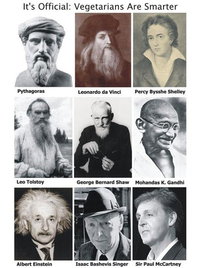I am so fortunate to be explored to unlimited knowledge and experiences in Buddhism from multiple organizations. Today, I have attended a Dharma Talk in T-Ritana, Klang, Malaysia. The speaker was Brother Kon Chee Min who spoke about "Dimension of Buddha's Teachings". Among all the spectators that attended the talk, he gave me the printing material of "The Fourteen Precepts of Engaged Buddhism" - by Venerable Thich Nhat Hanh. The name Thich Nhat Hanh was so familiar. When I did a research on the name, I remembered I read about him before in a comic version. He was from the Zen Organization (A Buddhist Organization from Japan) and made himself to Vietnam. Now he is locates in Plum Graden, France.
The Fourteen Precepts of Engaged Buddhism -
by Venerable Thich Nhat Hanh (From the book Interbeing)
1. Do not be idolatrous about or bound to any doctrine, theory, or ideology, even Buddhist ones. Buddhist systems of thought are guiding means, they are not absolute truth.
2. Do not think the knowledge you presently possess is changeless, absolute truth. Avoid being narrow minded and bound to present views. Learn and practice non attachment from views in order to be open to receive others' viewpoints. Truth is found in life and not merely in conceptual knowledge. Be ready to learn throughout your entire life and to observe reality in yourself and in the world at all times.
3. Do not force others, including children, by any means whatsoever, to adopt your views, whether by authority, threat, money, propaganda, or even education. However, through compassionate dialogue, help others renounce fanaticism and narrow-mindedness.
4. Do not avoid suffering or close your eyes before suffering. Do not lose awareness of the existence of suffering, including personal contact, visits, images and sounds. By such means, awaken yourself and others to the reality of suffering in the world.
5. Do not accumulate wealth while millions are hungry. Do not take as the aim of your life fame, profit, wealth, or sensual pleasure. Live simple and share time, energy, and material resources with those who are in need.
6. Do not maintain anger or hatred. Learn to penetrate and transform them when they are still seeds in your consciousness. As soon as they arise, turn your attention to your breath in order to see and understand the nature of your hatred.
7. Do not lose yourself in dispersion and in your surroundings. Practice mindful breathing to come back to what is happening in the present moment. Be in touch with what is wondrous, refreshing, and healing both inside and around you. Plant seeds of joy, peace, and understanding in yourself in order to facilitate the work of transformation in the depths of your consciousness.
8. Do not utter words that can create discord and cause the community to break. Make every effort to reconcile and resolve all conflicts, however small.
9. Do not say untruthful things for the sake of personal interest or to impress people. Do not utter words that cause division and hatred. Do not spread news that you do not know to be certain. Do not criticize or condemn things of which you are not sure. Always speak truthfully and constructively. Have the courage to speak out about situations of injustice, even when doing so may threaten your own safety.
10. Do not use the Buddhist community for personal gain or profit, or transform your community into a political party. A religious community, however, should take a clear stand against oppression and injustice and should strive to change the situation without engaging in partisan conflicts.
11. Do not live with a vocation that is harmful to humans and nature. Do not invest in companies that deprive others of their chance to live. Select a vocation that helps realise your ideal of compassion.
12. Do not kill. Do not let others kill. Find whatever means possible to protect life and prevent war.
13. Possess nothing that should belong to others. Respect the property of others, but prevent others from profiting from human suffering of other species on Earth.
14. Do not mistreat your body. Learn to handle it with respect. Do not look on your body as only an instrument. Preserve vital energies (sexual, breath, spirit) for the realisation of the Way. (For brothers and sisters who are not monks or nuns). Sexual expression should not take place without love and commitment. In sexual relations, be aware of future suffering that may be caused. To preserve the happiness of others, respect the rights and commitments of others. Be fully aware of the responsibility of bringing new lives into the world. Meditate on the world into which you are bringing new beings.
From the book "Interbeing" - Fourteen Guidelines for Engaged Buddhism by Thich Nhat Hanh
Venerable Thich Nhat Hanh is a Buddhist monk, poet, peace activist, and the author of "Being Peace", "The Miracle of Mindfulness" and many other books. He lives in a monastic community in south-western France called Plum Village, where he teaches, writes, gardens, and works to help refugees world-wide. He conducts retreats throughout the world on the art of mindful living, and has conducted special retreats for American Vietnam War veterans, psychotherapists, artists, environmental activists and children.






